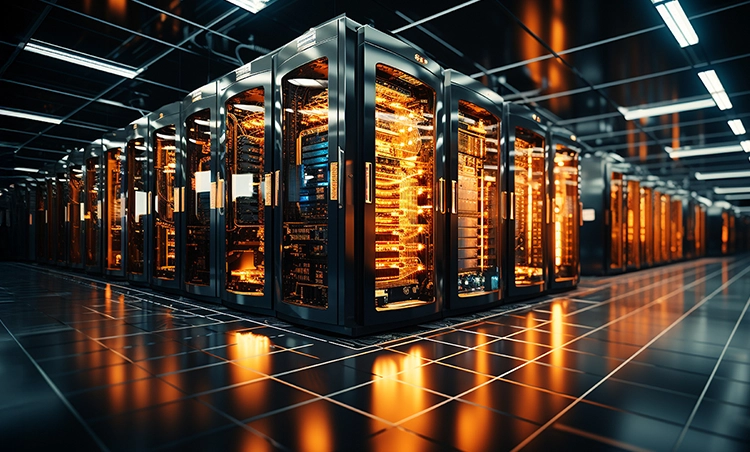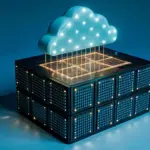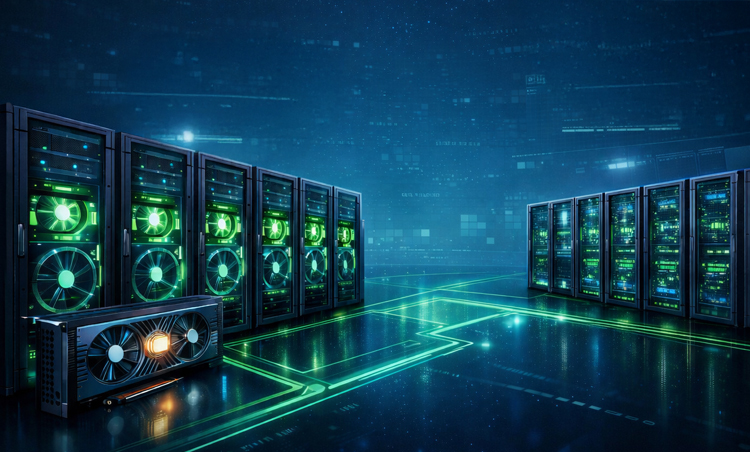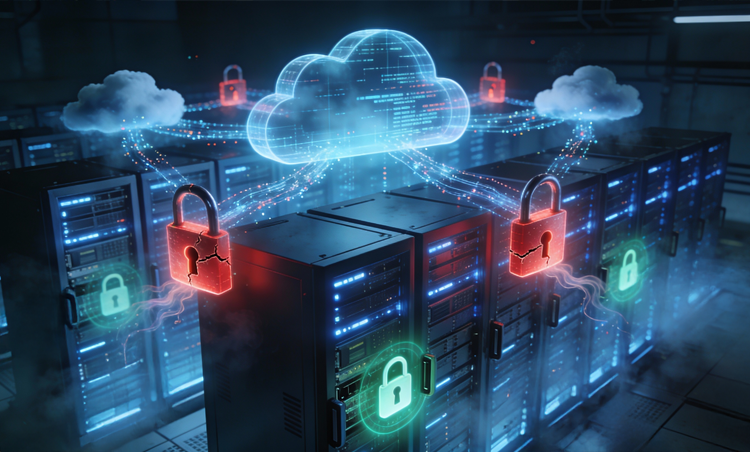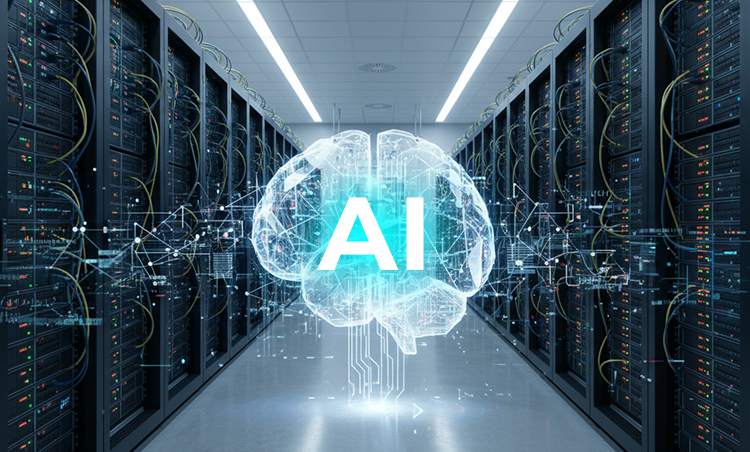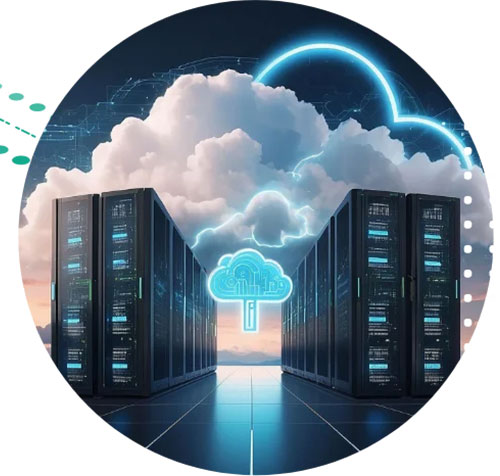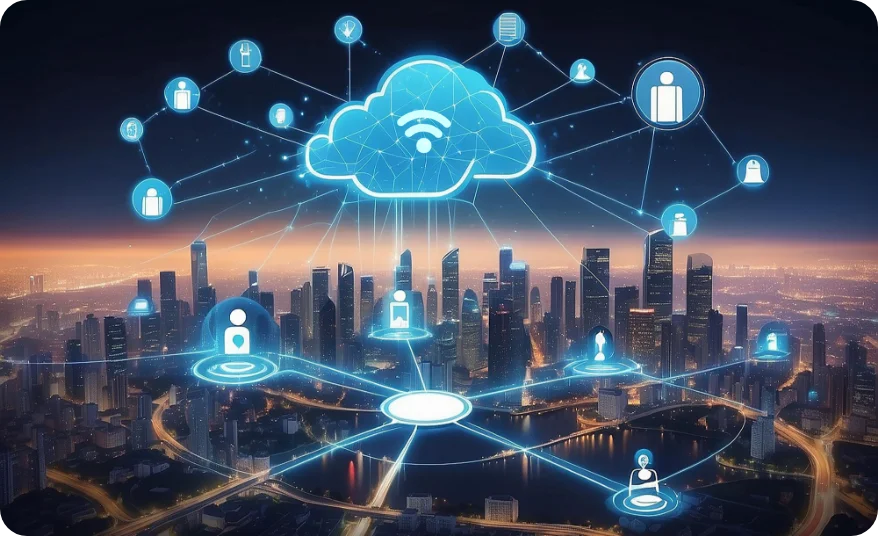Table of contents
Data plays a key role in modern life. However, little is known about where the data gets stored or how it is organized by entities. Today, many recognize a data center as the backbone of the digital world. According to a report by Statista, the projected global data center market in terms of revenue is expected to value at USD 436 Billion by 2028.
In this article, we will uncover what is a data center, their types, benefits, and how you can choose the right fit for you. Let’s take a look.
What is a data center?
A data center is a physical facility built to store an organization’s essential applications, data, and support its IT infrastructure. It serves as a central hub where computing resources such as computing servers, storage systems, and network devices are managed, secured, and maintained. These facilities ensure that data is accessible, securely stored, and operational around the clock to support both businesses and consumers.
Data centers are meticulously designed to incorporate essential functions like advanced cooling systems that prevent overheating, and optimized rack space that support efficient hardware placement. They have massive power requirements that are supported by multiple power grid connections as well as robust UPS systems thus ensuring seamless power supply, they also have multiple redundant network connectivity for always available needs. Crucially, all these components are supported by redundant sources, ensuring failover capabilities and real-time fail-safe operations. This redundancy guarantees smooth operations even in the face of unexpected challenges, extending reliability and resilience that businesses need.
Today, Sify Technologies has 14 data centers with 227+ MW IT power, expanding to 407+ MW by 2025. Learn more about Sify’s data center capabilities.
Benefits of Data Centers
Today, companies are investing more in data center servers on third-party facilities. Here’s why:
- Better Data Security
Data centers have advanced firewalls, physical security measures with 10 layers of access control including building security as well as strict identification and authorizations to access the physical servers; it also uses advanced digital controls such as biometric access control, and encryption techniques. These help in protecting against data breaches and make sure that confidentiality, integrity as well as accessibility of information is ensured.
Similarly, Sify employs 10 levels of physical security along with automation to ensure data security. - Scalability
As your business grows, so will the amount of data. Data centers allow your organization to scale at an unprecedented rate that can accommodate your growing business needs without overhauling infrastructure. - Unmatched Reliability
Backup systems, disaster recovery plans, and 24/7 monitoring ensure that data centers provide uninterrupted services even during power outages or natural disasters. - Cost Efficiency
Data centers like colocation or cloud do not require upfront investment in infrastructure. This saves a business CAPEX expenditure to set up as well as OPEX expenses that otherwise would have been spent on maintenance and upgrades. Businesses can start small and then grow their footprint in the data center providers facilities as they grow and demand increases.
Sify’s Total Cost of Ownership (TCO) calculator lets you make informed savings on the type of data center you can choose from. Calculate your savings today. - Faster Processing
Optimized cooling systems, high-speed networks, and specialized hardware ensure that data is processed faster and has less downtime which otherwise would have needed a big investment to build inhouse and run it to get all the benefits the data center providers provide. - Compliance with Regulation
Many industries require strict adherence to data protection laws. Data centers are well-equipped to meet such compliance requirements, thus avoiding heavy fines or legal issues.
Types of Data Centers
Not all data centers are the same. They differ in purpose, operational models, and generally geographical location plays a major role too. Let us look at the various kinds of data centers.
- Enterprise Data Centers
They are built, owned, and operated by a single organization. Enterprise data centers are designed to meet the specific business and IT needs of that organization and built on-premises of the enterprises who set it up.- Pros: Enterprise data centers offer complete control over infrastructure for personalised solutions, ensuring confidential data stays within the organization. These data centers also offer scalability to meet the expanding business needs, ensuring cost predictability through investments in a fixed infrastructure.
- Cons: However, enterprise data centers come with a high initial cost of setup and require continuous maintenance.
- Colocation Data Centers
In colocation data center models, firms rent a space from data center providers like Sify instead of building their own. The data center providers handle the infrastructure, including cooling, power, security, as well as provide managed services with strong SLA while the business can also choose to control its IT assets remotely or having some presence in the data center premise.- Pros: Colocation data centers are highly cost-efficient as they come with no on-house setup. They also extend reliable performance and a relatively reduced maintenance burden.
- Cons: Recurring fees, limited control, potential downtime risks, location constraints, and provider dependency are some of the biggest drawbacks of colocation data centers.
- Cloud Data Centers
These are off-premises infrastructures that are accessed by companies through the internet. Cloud data centers offer elastic options for storage and power computations, making them ideal for organizations seeking scalable, flexible capacities at a relatively attractive pay per use low-cost model.- Pros: Cloud data centers are highly scalable, cost-effective as they come with pay-as-you-go pricing. They are also accessible from anywhere and do not require any maintenance by the user.
- Cons: Disadvantages of cloud data centers include dependence on internet connectivity, variable costs, and compliance challenges.
- Hyperscale Data Centers
They are mainly for the big data driven companies because they can handle high-volume workloads. Hyperscale data centers offer scalability and operational efficiency making them unique compared to traditional data centers. All hyperscale data center providers provide various flavours of cloud services including private, public as well as hybrid cloud options and tools to manage them.- Pros: Hyperscale data centers are cost effective for large-scale operations, and extend strong energy optimization.
- Cons: Although, hyperscale data centers have a complex management structure and offer limited customisation options.
- Edge Data Centers
These smaller facilities located closer to the end-users reduce latency. Edge data centers are crucial in telecom as well IoT applications in manufacturing, pharmaceutical and many other industries, and autonomous vehicles that need real-time processing.- Pros: One of the biggest advantages of edge data centers is that they offer low latency for faster processing, improved performance by bringing data closer to users and a better bandwidth optimization.
- Cons: Higher deployment costs for multiple locations, limited scalability, potential management complexity are some of the cons of edge data centers.
- Green Data Centers
Green data centers are considered eco-friendly facilities with reduced energy consumption and lower carbon footprint. They achieve these by using renewable energy such as solar and wind energy, using energy-efficient cooling systems, and using non-toxic building materials. It is further enhanced by advancements including liquid cooling, AI-based energy management, and even waste heat recovery systems.- Pros: Due to reduced energy consumption, green data centers have lower operational costs. Their renewable energy integration ensures long-term cost and resource efficiency.
- Cons: However, green data centers have a high upfront cost, dependency on renewable energy availability and also pose potential location constraints for sustainable resources.
Sify’s green data centers are expected to cut overall energy costs by 20-40% and are projected to decrease greenhouse gas emissions by 29% by 2025.
How Can You Choose the Right Data Center?
Data center selection for business is imperative. There are numerous available options, so the final choice should go hand-in-hand with the needs and operational requirements of your business. Here’s more in-depth guidance to making a proper choice:
- Location
Proximity to operations of your business minimizes latency and ensures data transmission is faster. For applications requiring a response to the end-user in near real time, opt for the edge data center nearer to your customers. - Scalability
Assess your future growth plans. Choosing the right data center provider and the specific data center which should be able to accommodate your growing storage and computing needs seamlessly. Hyperscale and cloud data centers are great options for growing businesses. - Energy Efficiency
Green data centers reduce the operations cost and minimize the overall impact on the environment. Request for LEED (Leadership in Energy and Environmental Design) certifications. - Reputation and Reliability
Study a data center provider’s history with downtime, and operational efficiencies including the tools and services they provide to address your future needs. Look for minimal incidence of downtime and good testimonials from customers. - Customization
Can the data center customize services according to your business needs? Enterprise data centers need to be built with the specific needs of the organisation and colocation facilities provided by the data center providers also provide different options with flexibility and configurations. For very specific needs data center providers like Sify provides Build-To-Suit services as well. - Cost-Effectiveness
Align your budget with features. Cloud and colocation models are affordable options without compromising on quality. Use Sify’s Total Cost of Ownership (TCO) calculator to estimate your savings and choose the right fit for you.
Conclusion
The rising number of companies globally is further driving the need for an organized data management solution. Data centers play an important role in helping organizations secure their data and also access it as and when needed. A great data center provider example today is Sify Technologies. We offer a RAS based design which is ready and adaptable for future ready infrastructure. Find out more here.




